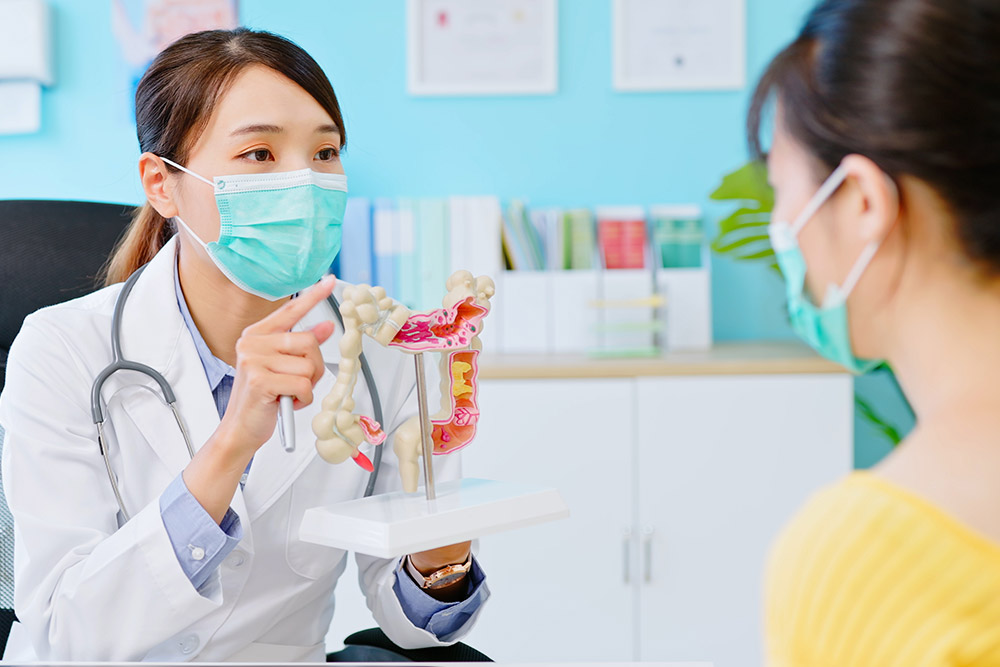What Is Flatulence?
Flatulence means passing gas. It's a normal part of digestion, and most people pass gas about 10-20 times per day. However, if gas is painful, occurs very frequently, or has a strong odor, it may signal an underlying issue that needs attention.
Common Causes and Risk Factors
- High-gas foods such as beans, onions, broccoli
- Carbonated or fizzy drinks
- Swallowing air while eating, drinking, or talking
- Food intolerances (lactose or gluten intolerance)
- IBS (Irritable Bowel Syndrome) or SIBO (Small Intestinal Bacterial Overgrowth)
- Certain medications or dietary supplements
- Risk factors: eating too fast, smoking, high stress levels
Signs and Symptoms
- Frequent bloating or a feeling of pressure in the abdomen
- Loud or repeated episodes of gas
- Abdominal or back pain associated with trapped gas
- Foul-smelling flatulence
- Chest discomfort or heartburn-like pain from gas in the upper gut
How Dr. Rishi Diagnoses Flatulence
1. Comprehensive History & Physical Exam
Dr. Chadha begins by reviewing your dietary habits, symptom patterns (bloating, pain, odor), and overall medical history. A focused abdominal exam checks for distension, tenderness, and abnormal bowel sounds.
2. Breath Testing
Hydrogen and methane breath tests help identify lactose intolerance and Small Intestinal Bacterial Overgrowth (SIBO), common drivers of excess gas.
3. Stool Analysis
Stool studies screen for infections, malabsorption issues, and markers of inflammation that could contribute to flatulence.
4. Imaging & Endoscopy
- Abdominal ultrasound or CT scans to rule out structural abnormalities.
- Endoscopic evaluation (upper endoscopy or colonoscopy) when needed to inspect the GI tract directly and exclude other conditions.
Frequently Asked Questions
What foods cause gas?
Beans, cabbage, onions, broccoli and fizzy drinks like soda can trigger excess gas.
Why does gas smell bad?
The odor comes from sulfur-containing gases produced when gut bacteria break down certain foods.
Can gas cause chest pain?
Yes. Gas trapped in the upper digestive tract can press on the chest and mimic heartburn or chest pain.
Is gas linked to back pain?
Yes. Gas-related bloating and pressure in the abdomen can refer pain to the back.
Will probiotics help smelly gas?
Yes. The right probiotic strains can balance gut bacteria and reduce foul-smelling flatulence.
When should I worry about gas?
If you experience ongoing pain, unexplained weight loss, blood in your stool or very strong odors, you should see a doctor.
How do you test for food intolerance?
Dr. Chadha uses breath tests (e.g., for lactose or SIBO) and guided food elimination diaries to identify triggers.
Are gas relief pills safe?
Yes. Over-the-counter options like simethicone and lactase supplements are generally safe, but consult your physician first.
Can stress make gas worse?
Yes. High stress levels can disrupt digestion, increase gas production and worsen symptoms.
How can I book a visit with Dr. Chadha?
You can schedule your flatulence consultation through the GastroDoxs website or patient portal at a time that suits you.











